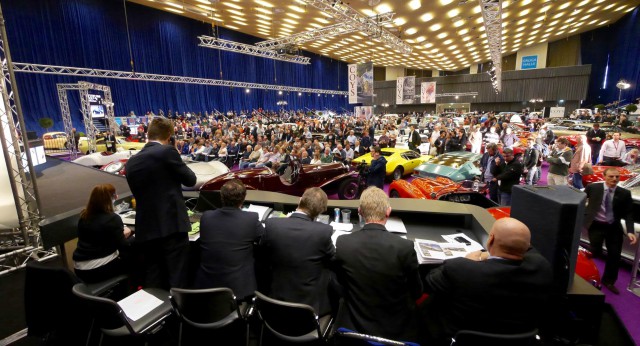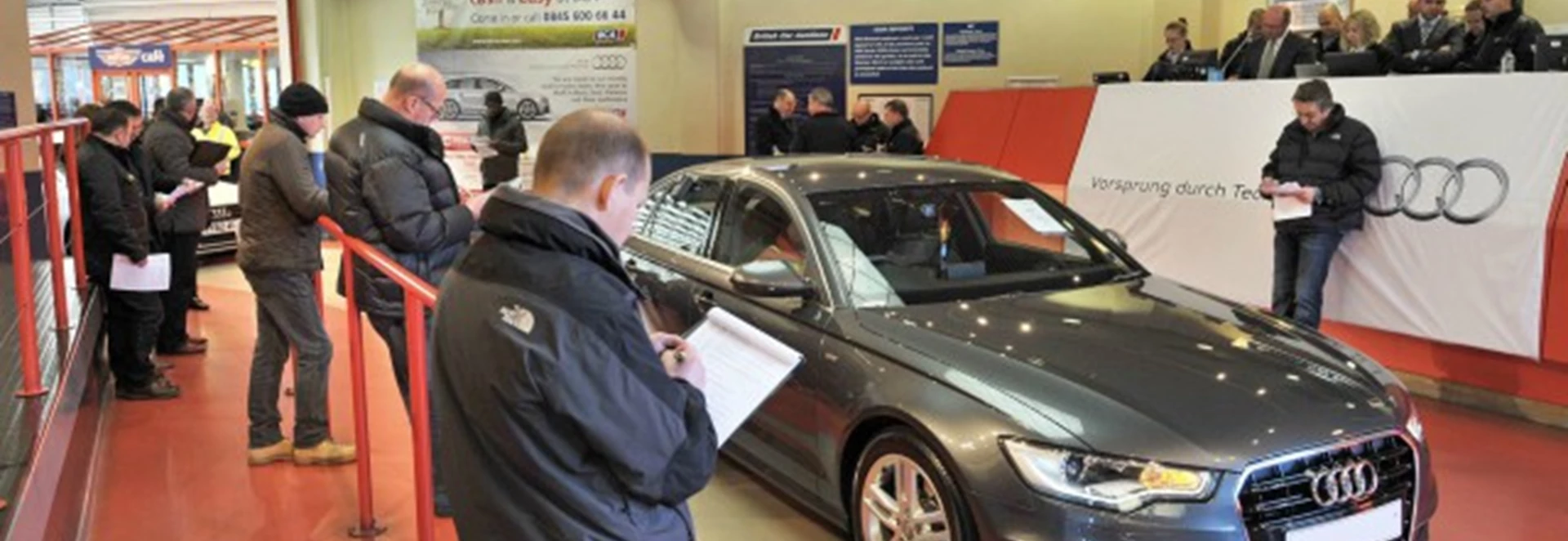One of the ways British motorists can get their hands on a car (usually used but sometimes new) is through a car auction. On a frequent basis, car auctions are hosted across Britain both online and at certain venues. Recent research has found that over 12,000 vehicles are sold at motor auctions in Britain each week.
In this guide, we explain what’s involved in a car auction and how to prepare yourself properly if you decide to go to one.
If, on the other hand, you’re looking instead for a good deal on buying a new car from a dealer, you’ve come to the right place.
What is a car auction?
Auctions work much like any other type of auction you can think of, with the obvious difference being the sale of new and used cars.
Often at UK car auctions, the cars sold will be ex-company fleet vehicles which will have a decent service history. There are sometimes private car auctions held involving rare vehicles (perhaps owned by a famous name) and with money going to charities. Car auctions are attended by private buyers, as well as dealership managers, owners of other types of businesses and even sometimes Government officials.
Separate to car auctions are what are called ‘car dealer auctions’. These types of auctions follow a similar premise but only licensed dealers can participate.
How do car auctions work?
When a car auction is properly taking place, vehicles for sale are driven in to the auction hall one after another. The car for sale will stop in front of the rostrum and the auctioneer (the main person overseeing the event) will describe the car to the crowd.

After giving out the description and details of the car, the auctioneer will ask for a starting bid. Bidding is typically done in £100 or £200 increments. If the car is particularly valuable though, then the increments can be much higher like, say, £1,000 for instance.
Usually there is a one or two-hour window before the start of the car auction proper where the cars on auction will be put on display so potential bidders can get a look at them in advance. Auction participants will usually study the car(s) they are interested in buying by either reading details on an online catalogue or a physical catalogue they can collect at the venue when they first arrive.
Tips for car auctions
Are you’re thinking of attending a car auction for the first time? Perhaps you’re just generally looking for ways to get a great deal out of such events? If either is the case, then there are some tips you can follow which can make all the difference:
Get a feel for car auctions first
Buying cars at auction is not something everyone will be able to automatically slip into right away. The auctions are often a fast-paced and the crowds and events going on can be quite a lot to take in at once if you’ve never been to such a thing before.
For that reason, it might be a good idea just to observe when attending your first car auction (or even your first few) to get a feel for what it's like and what things to expect.
Arrive in good time
If you arrive early to a car auction, you’ll have more time to pick up the sale catalogue and properly study what cars are going on sale and get more of an understanding of the car(s) you’re interested in.

Check if you need to register
At some car auctions, you’ll have to register before you will be able to make bids so establish if this is the case and go to the appropriate desk to sort this out. Before or after you make a successful bid on a car, you’ll have to give the clerk at the auction a payment to acquire a purchase slip.
This is a separate payment to what you spend on the auctioned car itself and requires £500 or 20 per cent of the hammer price, the payment must be covered with either with cash or with a debit card.
Examine the cars in advance
The cars which will be available to buy at the auction you’re attending will likely be displayed for an hour or two before the event kicks off. Use this opportunity to check the cars you’re interested in up close and see they are in good condition.
Listen to the auctioneer carefully
There is certain terminology which auctioneers may let out when giving a description for the car that’s about to take bids and it’s worth listening closely and being clued up on these terms in case they get brought up.
The auctioneer may say things such as “no major mechanical faults” or alternatively “specified faults” or “sold as seen”. If the auctioneer says something along the lines of “engineer’s report”, that means an expert engineer has examined the car and has likely left their report on the vehicle’s windshield.




